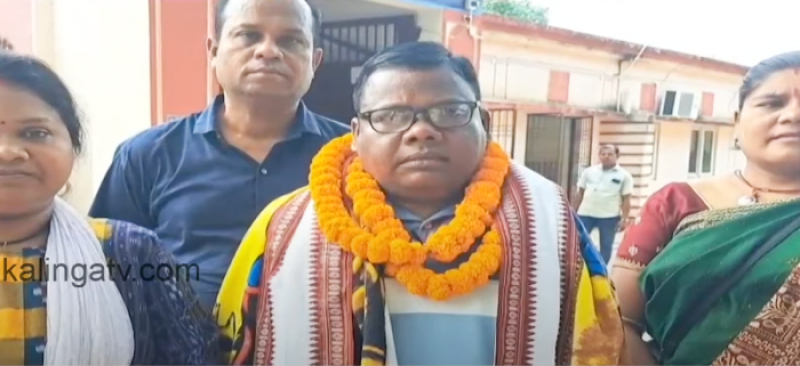
Mahendra Hembram, one of the Hindu extremists sentenced to life in prison for the 1999 murder of Australian missionary Graham Staines and his two young sons, was released from Keonjhar Jail in India on April 16, 2025.
Upon his release, Hembram, now 50, was greeted by supporters who chanted the Hindu slogan, “Jai Shri Ram [Hail lord Rama].” The Odisha State Sentence Review Board granted his release for “good behavior.”
According to the Morning Star News, Ajay Singh, a Catholic priest and human rights activist in Odisha, expressed shock at the spectacle, stating, “The way Hembram was welcomed with garlands and taken on a celebration procession by a crowd shouting Hindu slogans was a shocking sight for anybody believing in peace and tranquillity of a society.”
John Dayal, spokesperson for the United Christian Forum, echoed this sentiment, saying, “The obscene welcome accorded to the convict on his release was to be seen to be believed, and totally exposes the politics of the release.”
Upon his release, Hembram proclaimed his innocence, although court records show that he had previously admitted to being the sole culprit behind the murders.
On January 22, 1999, Staines, then 58, and his sons Philip, 10, and Timothy, 6, were burned alive in their vehicle while sleeping outside a church building in Manoharpur village, Keonjhar District. The Australian missionary had been working with leprosy patients in Baripada since he arrived in India in 1965.
The police stationed at the scene attributed the attack to a Hindu mob that targeted Staines for allegedly supporting religious conversions. A retired police officer recalled, “Accusing Staines of promoting conversion, Hembram allegedly assaulted him and his two children. The mob was being led by Dara and Hembram, who were raising slogans against Staines. Staines was pleading mercy. Hembram and Dara forced the foreigner and his two children inside their van and set it on fire by pouring kerosene.”
Witnesses reported that the victims had spread straw over their vehicle for warmth and were unable to escape the flames as the mob prevented them from exiting, leading to their deaths.
During the trial, Hembram exhibited erratic behavior and, on February 1, 2002, he “lost mental composure and declared himself the sole culprit and claimed that others were innocent,” as stated in court records. On September 22, 2003, a designated CBI court in Bhubaneswar sentenced Singh to death and 12 others, including Hembram, to life imprisonment, with one juvenile tried separately.
While the Orissa High Court later acquitted 11 convicts, it upheld the sentences for Singh and Hembram. In 2005, Singh's death sentence was commuted to life imprisonment, a decision that the Supreme Court upheld in 2011. The juvenile was released in 2008 following an appeal.
Hembram, who was initially detained at Jharpada Jail in Bhubaneswar and sentenced to life imprisonment on September 22, 2003, was transferred over the years to various facilities before arriving at Keonjhar Jail on September 28, 2011. His release follows Odisha’s 2022 premature release policy, which specifies minimum sentences for life convicts before considering remission, with serious murder cases requiring 20-25 years.
Additionally, another 30 murder convicts were released on April 16 after serving 14 to 25 years. Official sources confirmed that 14 life convicts were released between 2023 and 2024.
Hembram’s release has drawn attention to the pending remission plea of Dara Singh, the main perpetrator who remains imprisoned in the same facility. The learned counsel representing the state of Odisha indicated that the government is deliberating on the issue and will soon decide whether to remit Singh's sentence.

















